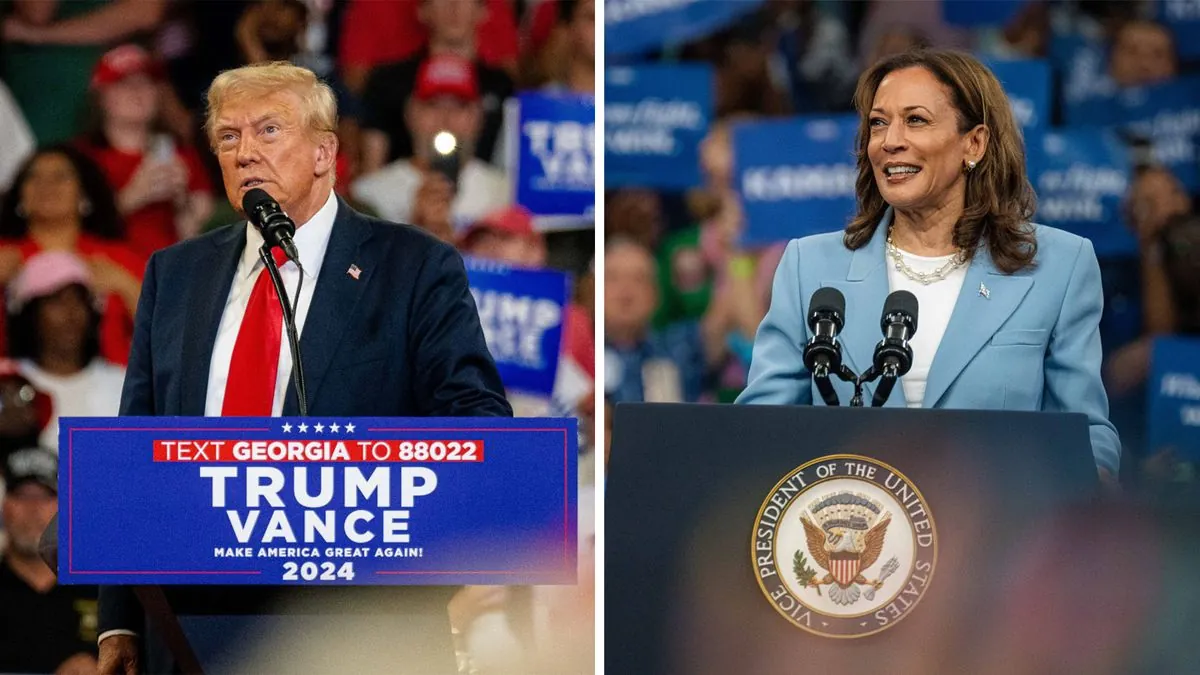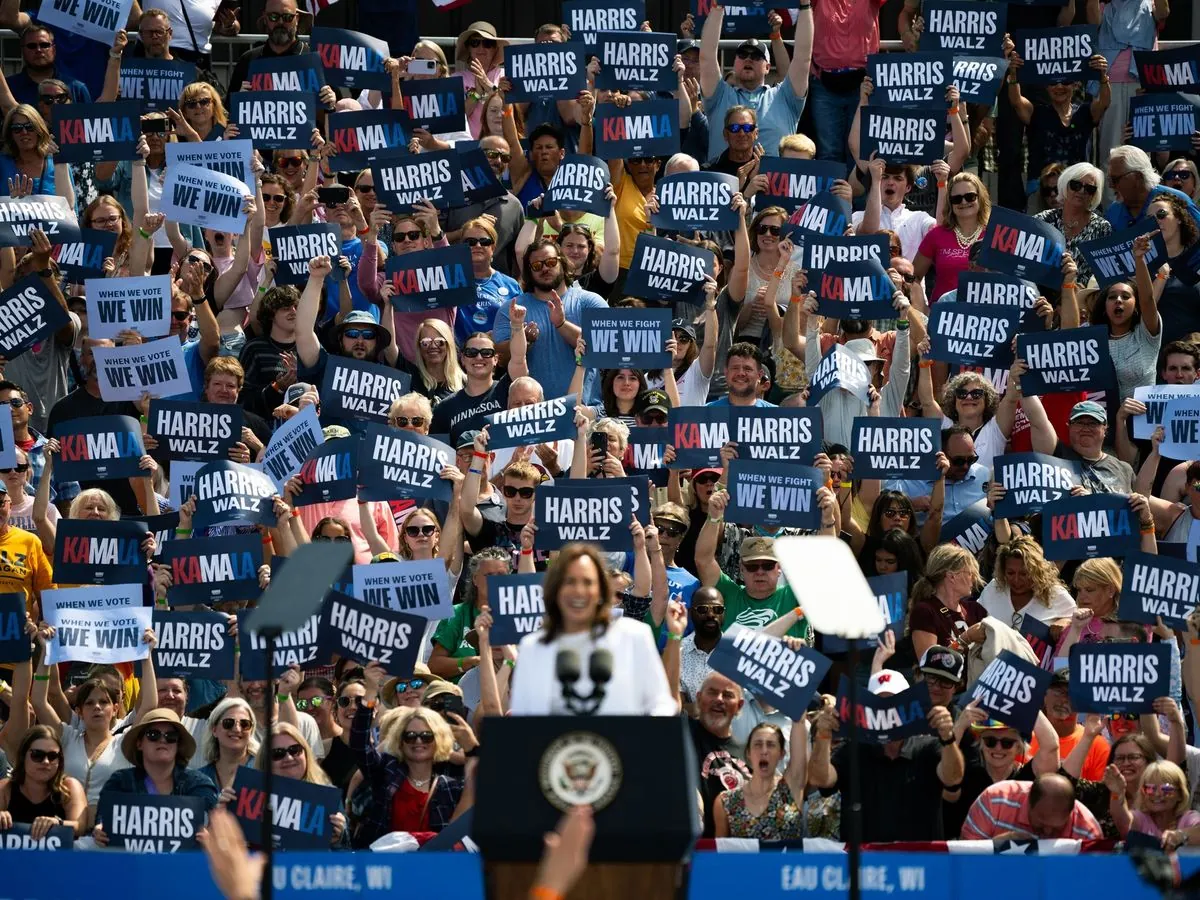Harris Maintains Slim Lead Over Trump in Tight 2024 Presidential Race
With the 2024 US presidential election approaching, Kamala Harris holds a narrow lead over Donald Trump. Swing states and key issues like immigration and abortion shape the campaign landscape.

As the 2024 US presidential election draws near, the race between Kamala Harris and Donald Trump remains highly competitive. With just weeks until Americans cast their votes on November 5, 2024, polls indicate a close contest between the two candidates.
Harris, who became the Democratic nominee after Joe Biden's withdrawal, maintains a slight edge over Trump in national polling aggregates. However, the outcome is far from certain, as several factors continue to influence the campaign.
The Electoral College system, established by the US Constitution in 1787, plays a crucial role in determining the winner. A candidate needs 270 out of 538 electoral votes to secure the presidency. This system has led to five instances where the popular vote winner did not become president, most recently in 2016 when Trump defeated Hillary Clinton.
Immigration and abortion remain polarizing issues in the campaign. Harris faces criticism for her role in addressing migration from Central America, while Trump contends with public support for abortion rights. Recent polls show Harris with a net approval rating of zero, while Trump has a net disapproval of 10 points.

The vice presidential candidates, JD Vance for the Republicans and Tim Walz for the Democrats, participated in a debate on October 1, 2024. While Vance appeared more composed, both candidates have faced challenges in gaining widespread popularity.
Several swing states are crucial to the election outcome. Pennsylvania, with its significant number of electoral votes, is currently too close to call. Georgia, which Biden narrowly won in 2020, remains competitive. Other key battlegrounds include North Carolina, Michigan, Arizona, Wisconsin, and Nevada.
The Electoral College system has been the subject of debate, with over 700 proposals introduced in Congress to reform or eliminate it. Supporters argue it protects smaller states' interests, while critics claim it gives disproportionate weight to less populous areas. Some states have joined the National Popular Vote Interstate Compact, agreeing to allocate their electoral votes to the national popular vote winner.
As the campaign enters its final weeks, both candidates are focusing their efforts on these crucial swing states, aware that even small margins could determine the outcome of this closely watched election.
"The Constitution's text and the Nation's history both support allowing a State to enforce an elector's pledge to support his party's nominee—and the state voters' choice—for President."






























